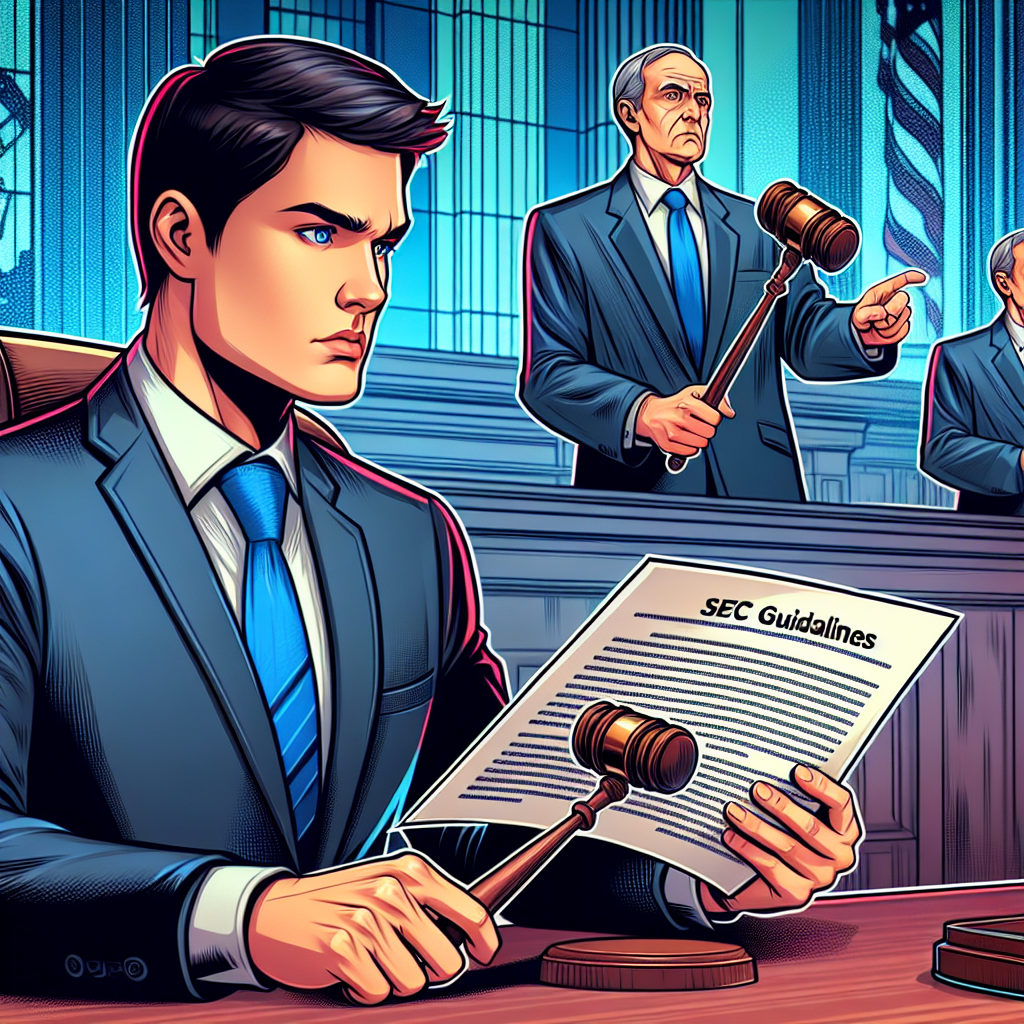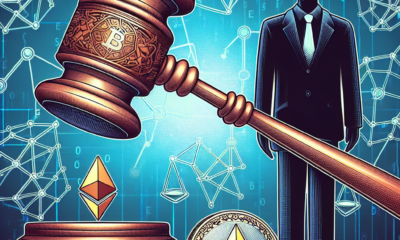Altcoins
John Deaton, XRP Attorney, Criticizes SEC’s Gary Gensler for Negatively Influencing the Entire Agency

In a developing scenario that underscores the growing tensions between regulators and the cryptocurrency community, John Deaton, a noted XRP advocate and legal expert, has directed a piercing critique at Gary Gensler, the Chairman of the U.S. Securities and Exchange Commission (SEC). Deaton’s criticisms, articulated through social media engagements and formal legal briefs, highlight a broader sentiment of frustration and calls for greater accountability within the regulatory framework governing digital assets.
**A Closer Examination of Deaton’s Grievances**
John Deaton’s confrontation with the SEC is not an isolated affair but a reflection of the intricate and often contentious relationship between regulatory bodies and the burgeoning cryptocurrency sector. Through his public statements and legal interventions, Deaton accuses Gensler of fostering an environment of “bad faith regulation,” which he believes has not only stifled innovation but also compromised the integrity of the SEC as an institution. His calls for multiple subpoenas against Gensler and the SEC are a testament to his commitment to unearthing what he perceives as regulatory overreach and lack of transparency.
This push for accountability gained momentum with the involvement of Patrick McHenry, the Chairman of the House Financial Services Committee (HFSC), who has echoed similar concerns. McHenry pointedly criticized Gensler for allegedly misleading Congress and avoiding crucial questions regarding the SEC’s stance on Ethereum’s classification as a security. Such avoidance, according to McHenry, is indicative of the SEC’s inconsistent regulatory posture, particularly in light of a previous federal judge’s ruling that admonished SEC enforcement lawyers for deceitful practices. This volatile regulatory landscape raises pivotal questions about the efficacy and fairness of the SEC’s approach to overseeing digital assets.
**Broader Implications for Ethereum and the Digital Asset Space**
The ongoing legal and public opinion battle between cryptocurrency advocates and the SEC extends beyond individual grievances, touching on foundational issues of regulatory clarity and innovation. The case of Ethereum’s classification exemplifies the complexities inherent in applying traditional securities laws to digital assets. While another XRP lawyer, Bill Morgan, has sought to clarify that the SEC’s current investigation focuses on the conditions under which Ethereum offerings might constitute securities, the underlying issue remains. This scenario underscores a broader demand for clear, consistent, and fair regulatory guidelines that can accommodate the unique characteristics and potential of digital currencies.
Furthermore, the legal skirmish sheds light on the possible ramifications for the entire cryptocurrency ecosystem. At stake are not only the operational realities of companies like Ripple and their respective digital assets but also the broader question of how the United States positions itself within the global digital economy. Regulatory uncertainty, as highlighted by Deaton and other critics, risks not only stifling domestic innovation but also pushing entrepreneurs and investors toward more favorable regulatory climates abroad.
**Looking Forward: A Call for Balanced Regulation**
As the debate over the SEC’s role in regulating digital assets unfolds, the calls by John Deaton, supported by influential figures like Patrick McHenry, resonate with a growing segment of the cryptocurrency community seeking a balanced and enabling regulatory framework. The implications of this discourse are far-reaching, affecting key stakeholders across the financial and technological spectrum. Achieving a consensus on appropriate regulatory mechanisms will require open dialogue, comprehensive analysis, and a forward-looking perspective that embraces innovation while safeguarding investor interests.
In conclusion, the SEC’s navigation of the complex digital asset landscape is at a critical juncture. As advocates like John Deaton continue to challenge the status quo, the eventual outcome of these discussions will likely have significant implications for the regulatory frameworks governing cryptocurrencies. The quest for balanced, fair, and transparent regulation remains a pivotal challenge and opportunity for regulators, legal experts, and industry stakeholders alike.
-

 Press Releases11 months ago
Press Releases11 months agoGaming Technologies of the New Time!
-

 Bitcoin8 months ago
Bitcoin8 months agoBitcoin Surges Past $64K as SEI and POPCAT Lead Daily Crypto Gains on September 25
-

 Altcoins3 months ago
Altcoins3 months agoBitcoin Declines Below $80K: deVere CEO Nigel Green Remains Bullish on Long-Term Outlook Following Strategic U.S. Bitcoin Reserve Announcement
-

 Press Releases1 year ago
Press Releases1 year agoEvo Exchange: Redefining the Decentralized Exchange Landscape
-

 Altcoins2 months ago
Altcoins2 months agoCalls for Enhanced Discussion on Bitcoin as Brazil’s Reserve Asset: A Move Towards ‘Internet’s Gold’
-

 Press Releases9 months ago
Press Releases9 months agoCODE, a Newly Born Project Brings Decentralization Back to the Main Menu
-

 Bitcoin1 year ago
Bitcoin1 year agoHouse’s McHenry Charges SEC Chief Gensler With Misleading Congress Regarding Ethereum (ETH)
-

 Press Releases1 year ago
Press Releases1 year agoGolden Cobra: Pioneering Real Utility and Sustainability in the Meme Coin Space




